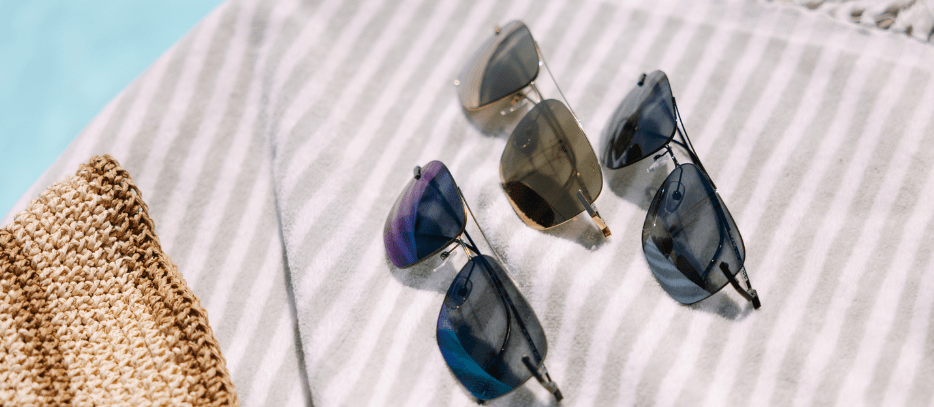Proper maintenance of polarized sunglasses is essential to ensure their optimal performance and extend their lifespan. In this guide, we’ll cover effective cleaning techniques and tips to keep your polarized lenses in top condition. If you’re unsure about the type of your sunglasses, refer to our guide on How to Tell If Sunglasses Are Polarized.
Importance of Regular Cleaning
Regular cleaning of polarized sunglasses is crucial to maintain their clarity and effectiveness. Dust, grime, and oils from your skin can accumulate on the lenses, impairing your vision and potentially damaging the polarized coating. Keeping your sunglasses clean not only enhances your visual experience but also prolongs the life of the lenses. Neglecting to clean your polarized sunglasses can lead to the buildup of debris that scratches the lenses, reducing their ability to filter light effectively. Over time, these small scratches can compromise the polarized coating, leading to decreased performance and a shorter lifespan for your sunglasses.
Consistent maintenance prevents the accumulation of bacteria and allergens on your sunglasses, promoting better eye health by reducing the risk of infections caused by prolonged exposure to dirty lenses. By incorporating regular cleaning into your routine, you can enjoy clear, crisp vision and extend the durability of your polarized sunglasses, ensuring they remain a reliable accessory for outdoor activities and daily use.
Step-by-Step Cleaning Guide
Follow these steps to clean your polarized sunglasses properly:
-
Rinse Glasses Under Lukewarm Water
Start by rinsing your sunglasses with lukewarm water to remove loose dirt and debris. This initial rinse helps prevent scratches that could be caused by rubbing particles into the lenses during cleaning. -
Apply a Small Amount of Mild Soap
Use a mild, lotion-free soap and apply a small amount to your fingers. Gently rub the soap onto the lenses and the frame of the sunglasses. Avoid using dish soaps that contain lotions or harsh chemicals, as these can leave residues or damage the polarized coating. -
Gently Clean with a Microfiber Cloth
After applying the soap, use a soft microfiber cloth to clean the lenses thoroughly. Microfiber cloths are designed to attract and hold dust and oils without scratching the surface. Avoid using paper towels or tissues, as they can be abrasive and cause scratches. -
Rinse Thoroughly to Remove Any Soap Residue
Rinse your sunglasses again under lukewarm water to wash away any remaining soap. Ensure that no soap residue is left, as it can cause streaks or attract more dirt. -
Gently Pat Dry with a Clean Microfiber Cloth
Pat the lenses dry with a clean microfiber cloth, being careful not to rub or scratch the surface. Patting instead of rubbing helps to avoid creating micro-scratches that can accumulate over time.
What to Avoid When Cleaning Polarized Sunglasses
To keep your polarized sunglasses in the best condition, avoid the following materials and substances, which can damage the polarized coating:
- Abrasive Materials: Avoid using paper towels, rough cloths, or your shirt to clean the lenses. These materials can scratch the surface.
- Harsh Chemicals: Do not use cleaners containing ammonia, bleach, or other harsh chemicals. These can degrade the polarized coating.
- Household Cleaners: Avoid window cleaner and multi-surface cleaners, as they can leave residues and damage the lenses.
- Excessive Force or Scrubbing: Be gentle when cleaning your lenses. Excessive force or scrubbing can create scratches and damage the polarized coating.
Storing Your Polarized Sunglasses
Proper storage is vital to protect your polarized sunglasses from scratches and potential damage. Follow these tips for storing your sunglasses:
- Use a Protective Case: Always store your sunglasses in a protective case when not in use. This prevents them from getting scratched or crushed.
- Avoid Placing Lenses Down: Never place your sunglasses lens-down on any surface. This can cause scratches.
- Keep Out of Extreme Temperatures: Avoid leaving your sunglasses in high-temperature environments, such as inside a car on a hot day. Extreme heat can warp the frames and damage the lenses.
Shop For Our Hard Sunglasses Case
Additional Maintenance Tips
In addition to regular cleaning and proper storage, follow these additional tips to maintain your polarized sunglasses:
- Check and Tighten Screws Regularly: Sunglasses often have small screws that can become loose over time. Regularly check and tighten these screws to keep your sunglasses in good condition.
- Avoid Extreme Temperatures: Exposure to extreme heat or cold can damage both the frames and the lenses. Store your sunglasses in a moderate environment whenever possible.
- Use Approved Cleaning Solutions: Only use cleaning solutions specifically designed for polarized lenses. These products are formulated to clean effectively without damaging the coating.
- Handle by the Frame: To avoid smudging the lenses, handle your sunglasses by the frame rather than the lenses.
Check Out Our Anti-Fog Cleaning Kit
How to Clean Polarized Sunglasses - Frequently Asked Questions
-
Can I use window cleaner on my polarized sunglasses?
No, window cleaner contains chemicals that can damage the polarized coating. Instead, use a mild soap and water solution. -
How often should I clean my sunglasses?
Clean your sunglasses as needed, typically once a week or whenever they appear dirty. Regular cleaning helps maintain clarity and prolongs the life of the lenses. -
What is the safest way to remove stubborn residue on lenses?
Use a mixture of water and mild soap, gently rubbing with a microfiber cloth. Avoid using harsh chemicals or abrasive materials that could damage the lenses. -
Is it safe to leave sunglasses in the car?
No, the heat inside a car can warp the frames and damage the lenses. Always store your sunglasses in a cool, dry place. -
Can I repair scratched polarized lenses at home?
It’s best to have scratches repaired by a professional, as DIY methods can further damage the lenses. If your lenses are heavily scratched, consider replacing them.
Go Back to Blog Page

